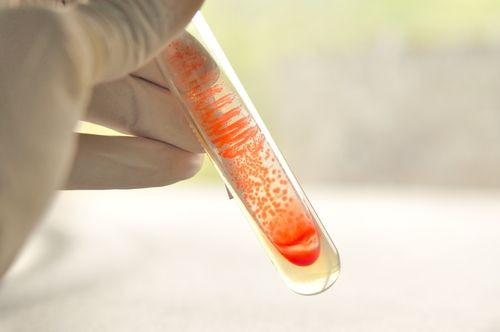Penicillin Allergies Wear Off As We Age; Patients Should Be Retested

Patients who have been diagnosed with penicillin allergies probably aren’t allergic to it anymore, according to a new finding. The allergy wears off over time, but most people live the rest of their lives believing they're still allergic, and pay for more expensive, unnecessary medication.
Mayo Clinic Allergist Dr. Thanai Pongdee, and his team retested 384 patients and found 94 percent of them were not allergic. The patients were scheduled to undergo several different types of surgeries when they were tested. Pongdee said he expected they would find maybe half of the patients still allergic to penicillin, a common medical allergy. However, when almost all of the patients found they weren’t allergic, it more than confirmed a suspicion doctors had for a long time.
"We knew that the majority of people who list penicillin as an allergy actually aren’t allergic when they are reevaluated, so if you can determine they are not, you can avoid using more toxic and more expensive antibiotics," Pongdee told NBC News. "It doesn’t happen very often that a health care provider challenges the presumption that the patient is still allergic. Many don’t realize that this is something a person may lose over time."
When a patient walks into the hospital, one of the first questions they’re asked is, "Are you allergic to any medications?" Ten percent of the population report they're allergic to penicillin, making it the most commonly reported drug allergy, according to the American College of Allergy, Asthma & Immunology (ACAAI). A patient with an allergy may develop hives, swelling, throat tightening, wheezing, coughing, and difficulty breathing. In severe cases, it can cause a patient to go into sudden anaphylactic shock, which will rapidly worsen and could become deadly.
Penicillin has been around since 1928, and has been used to treat a variety of conditions, such as strep throat, ear infection, or sinus infection. Penicillin is the base of many front-line drugs, and if you can’t take one of those, you’re often forced to take a more expensive alternative with more side effects.
When one Long Island mother, whose son was diagnosed with a penicillin allergy at the age of 8, was asked if she would have him retested, she said, "I definitely would. It would stop us from worrying because he doesn't wear a bracelet. He broke out in a rash and hives after he was given amocycillin for his strep throat."
In most cases their sensitivity to penicillin will lessen overtime and can be treated safely with the drug. It’s exciting news for patients with documented penicillin allergies because they can start receiving cheaper drugs, such as the generic penicillin-based amoxicillin used to fight bacterial infections. Most people are diagnosed when they are toddlers due to an adverse reaction, but then live the rest of their lives avoiding a drug allergy with unfounded fears.
“There are two issues: these patients are put on other antibiotics which [are] less effective and potentially have more side-effects,” Family Allergist Dr. James Sublett, the incoming president of the ACAAI told NBC News. “The other is cost. A very commonly used substitute, for example Levaquin, is seven to eight times more expensive for a 10-day course than a similar course of generic Augmentin, a penicillin drug.”



























